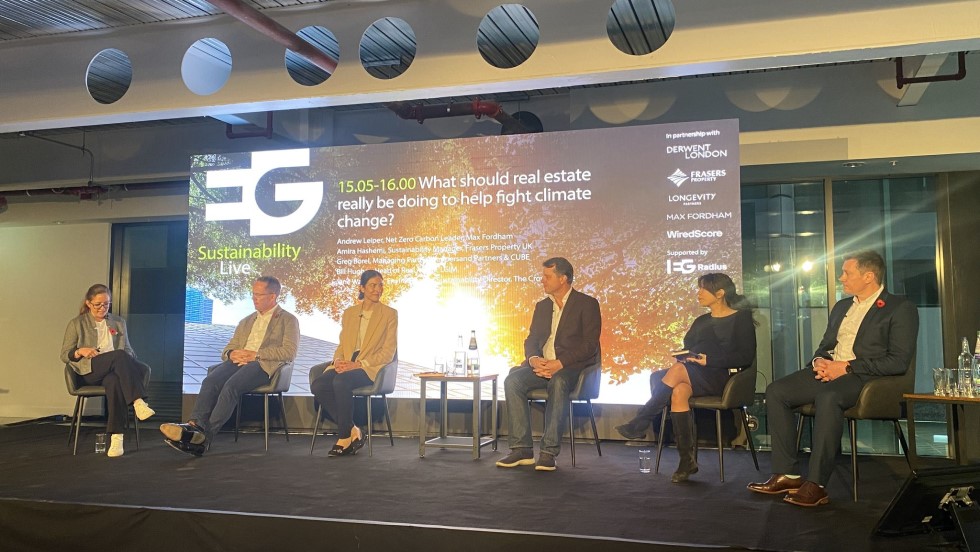08 Dec 2021
COP26: The cost of inaction is higher than the cost of acting now
We got in touch with Amira Hashemi, Sustainability Manager for Frasers Property UK, to share her views following last month’s COP26 event. Amira was invited to Glasgow, Scotland, to speak at an event on the sidelines of the UN Climate Change Conference.
Frasers Property has committed to achieving net-zero carbon by 2050, aligned with a Science Based Approach. We are one of the first real estate companies who have committed to including Scopes 1, 2 and 3 emissions in our drive towards net-zero. We recognise that climate change is awakening a real global people’s movement where every stakeholder has a critical role to play, but it needs to start now.
Frasers Property UK has published its roadmap to achieving net-zero carbon and in the efforts of transparency, will be making available annual updates on the roadmap implementation. Innovation and learning are both key to unlocking sustainable progress for any company – we invite like-minded organisations to join us by sharing openly.

Arrival by train for inter-UK travel was recommended to reduce carbon emissions.
CONTRIBUTION BY AMIRA
COP26 has been touted as the most significant conference of the parties in a generation. Since COP15, and the creation of the Paris Agreement to limit warming to below 2 degrees, and lack of meaningful action in the past six years, all hopes were placed on COP26 in Glasgow to deliver new global commitment to limit warming to 1.5 degrees through net zero carbon commitments by 2050, mobilising finance and working together, across businesses and nations to achieve these targets.
Modelling shows that the conference was able to achieve 2.4 degrees Celsius, still out of reach of 1.5 degrees. However, with COP27 due to be scheduled next year, the 1.5 degrees C dream may still be alive.

Amira, seated third from the left, was speaking on a panel to the topic ‘What should real estate really be doing to help fight climate change?’
Held on the ‘Cities, Regions and the Built Environment’ day, I was invited to speak on a panel on the topic of how can real estate help address climate change. My top takeaways from this event and my time in Glasgow are:
- Rapid decarbonisation is required. We must go beyond business as usual to reduce embodied and operational carbon emissions where possible. Prioritising this now will enhance the resilience of the built environment in the future.
- More finance is required to make the transition to a low carbon economy. Banks and insurers may start only issuing green financing to assets that will remain relevant in the long term. Significant investment is required to avoid stranded assets, that is, buildings that are too risky to occupy or acquire due to climate and regulation risks.
- We cannot lose sight of the impact of improving biodiversity, utilising nature-based solutions and enhancing the health of communities, while still decarbonising.
- A price on carbon emissions is imminent, and will eventually be treated as a waste product that organisations must pay for emitting.
The conference highlighted that low carbon solutions are available today, and it needs the whole built environment supply chain to work together to implement these solutions to reduce the impact of climate change and ensure current cities and communities will be usable and relevant in the future.
